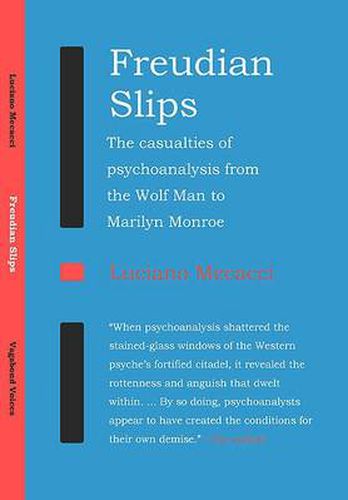Readings Newsletter
Become a Readings Member to make your shopping experience even easier.
Sign in or sign up for free!
You’re not far away from qualifying for FREE standard shipping within Australia
You’ve qualified for FREE standard shipping within Australia
The cart is loading…






This historical and scientific study of psychoanalysis and its founding group brings together Luciano Mecacci’s own work and existing material, and presents the reading public with a story that is not only fascinating and terrible but also essential and thought-provoking, given the enormous influence of Freud’s ideas on European art, writing and wider culture throughout most of the twentieth century. It is important to distinguish between Freud the scientist and Freud the creative thinker. The former often lacked rigor and allowed his ideas to run audaciously ahead of the evidence he had collected. The latter, on the other hand, was brilliant, innovative and prolific, but the material produced was untested, as Mecacci demonstrates convincingly, and therefore unsuitable for clinical application. Freud’s psychoanalytical therapy established a movement and set in train a series of often tragic events, which were almost always ignored at the time of their occurrence. Mecacci argues that there was nothing casual about these, and their roots are to be found in the manner in which the psychoanalytical movement was born and the historical context - dark times of war, economic crisis and xenophobia.
$9.00 standard shipping within Australia
FREE standard shipping within Australia for orders over $100.00
Express & International shipping calculated at checkout
Stock availability can be subject to change without notice. We recommend calling the shop or contacting our online team to check availability of low stock items. Please see our Shopping Online page for more details.
This historical and scientific study of psychoanalysis and its founding group brings together Luciano Mecacci’s own work and existing material, and presents the reading public with a story that is not only fascinating and terrible but also essential and thought-provoking, given the enormous influence of Freud’s ideas on European art, writing and wider culture throughout most of the twentieth century. It is important to distinguish between Freud the scientist and Freud the creative thinker. The former often lacked rigor and allowed his ideas to run audaciously ahead of the evidence he had collected. The latter, on the other hand, was brilliant, innovative and prolific, but the material produced was untested, as Mecacci demonstrates convincingly, and therefore unsuitable for clinical application. Freud’s psychoanalytical therapy established a movement and set in train a series of often tragic events, which were almost always ignored at the time of their occurrence. Mecacci argues that there was nothing casual about these, and their roots are to be found in the manner in which the psychoanalytical movement was born and the historical context - dark times of war, economic crisis and xenophobia.